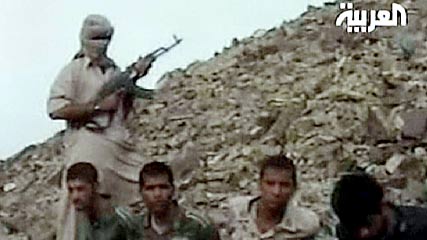
(Nov. 3) — Secretary of State Hillary Rodham Clinton today designated an anti-Iranian militant band once linked to the U.S. as a foreign terrorist organization, a move that may have little concrete effect on the group but suggests the Obama administration is laying ground for a new round of talks with Tehran.
The State Department’s formal terrorist classification of Jundallah, a group claiming to fight for the rights of Sunni Muslims in Iran, means the group and its members are subject to economic sanctions and could have any U.S. assets frozen, and that Americans are banned from helping it in any way. But it’s unclear how Jundallah’s members, believed to number no more than 1,000, would be affected.
Based in Balochistan, which straddles the Iranian-Pakistani border, Jundallah is accused of killing or injuring hundreds of Iranian civilians and government officials through suicide bombings, ambushes, kidnappings and targeted assassinations, the State Department noted.

Violently active since 2003, Jundallah may have been responsible for an assassination attempt on Iranian President Mahmoud Ahmadinejad in 2005. It destroyed a Shiite mosque in Zahedan — the capital of Sistan va Balochistan province — in 2009, and in July of this year attacked the Grand Mosque there, killing 30 people and injuring hundreds.
The Obama administration roundly condemned the Grand Mosque attack at the time. And though the administration of George W. Bush — and specifically Vice President Dick Cheney — reportedly considered supporting Jundallah, the U.S. government has never publicly done so.
In past periods of warming diplomacy with Iran, the U.S. has placed other domestic Iranian anti-government militant groups on the terrorist list, including Mujahideen-e Khalq and two Kurdish groups.
The formal terrorist designation of Jundallah, probably welcome in Tehran, comes as the Obama administration and European allies look set to return to the nuclear negotiating table with Iran.
Last week the White House said the U.S. is preparing a deal for Iran to give up parts of its nuclear program that could help the country produce atomic weapons, a little over a year after a similar deal fell through.
Iran has been feeling the economic pain of tough new United Nations sanctions imposed in June and a skein of unilateral sanctions from the U.S., Europeans and other countries put in place since then. The Obama administration hopes any new negotiations will reveal whether the Iranian leadership’s long resistance to compromise has softened.
On Friday, Catherine Ashton, the top European Union foreign affairs official, said Iran had finally responded to an invitation to new talks that she made in July and that a new round of negotiations could resume as early as next week.
Iran sent a letter to Ashton saying the talks could start “from Nov. 10 on,” and the two sides are believed to be working on agreeing on an exact time and place.
But Iran has also insisted that Israel’s nuclear program be part of any negotiations — a nonstarter for the U.S. and its partners.
And Tehran’s long history of starting and stalling nuclear negotiations — as well as the progress its nuclear efforts have made since last year’s deal fell apart — have fostered little optimism for this latest round of diplomacy.
, 04 Nov 2010

Leave a Reply